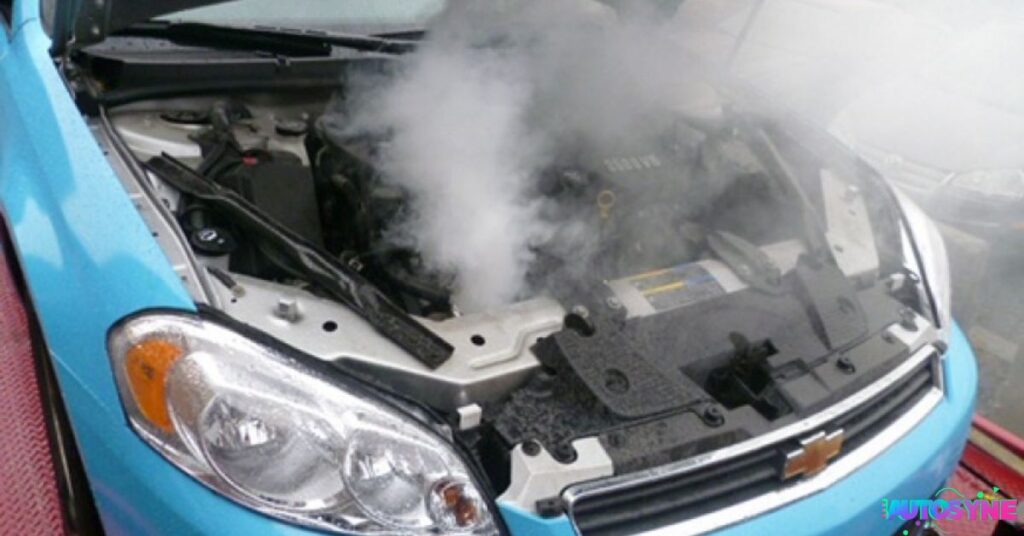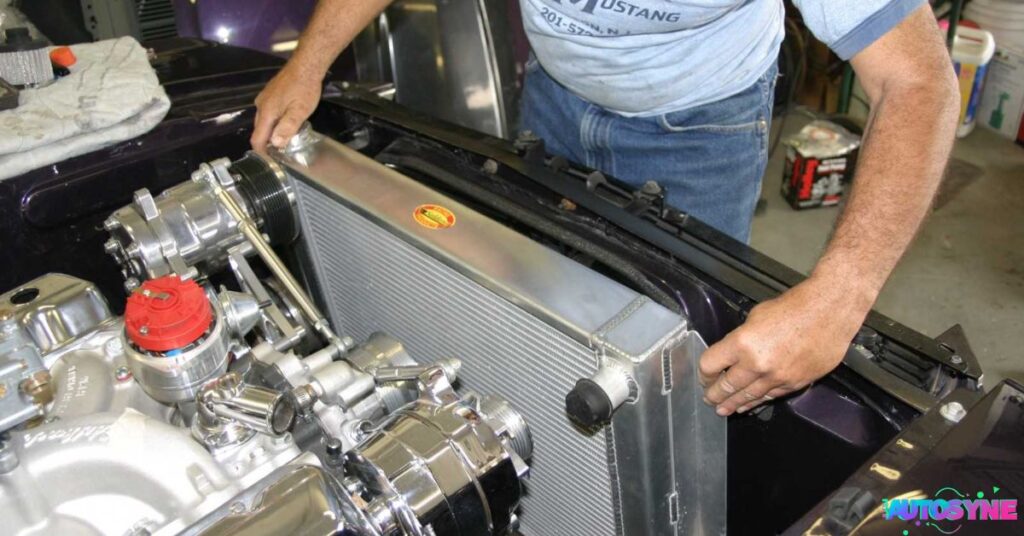Understanding this process is crucial for maintaining your vehicle’s health and safety. In this article, we’ll delve into the factors that influence cooling times and provide practical tips for handling an overheated engine.
Whether you are stuck in traffic on a scorching day or facing uphill climbs, knowing how to cool down your car effectively can prevent costly damage and keep you safely on the road. Imagine driving on a sunny day when suddenly your car starts getting too hot. Don’t panic.
Knowing how long it takes for a car to cool down can help you stay calm and handle the situation. In this article, we will explain in simple terms how cars cool down after overheating. So, let’s learn how to keep our engines cool.
Signs of an Overheating Engine
- Spiking Temperatures: Watch out for your engine temperature gauge suddenly rising to “H” or entering the red zone.
- Steamy Situations: Keep an eye out for steam or smoke billowing from under your car’s hood, indicating excessive heat.
- Suspicious Smells: If you catch whiffs of unusual odors, like a sweet scent from leaking coolant or a burnt aroma from oil leaks, it’s time to investigate.
- Power Problems: Experience difficulty accelerating or notice a loss of power? It could be a sign of engine overheating.
- Coolant Concerns: Keep tabs on your coolant level if it is dropping quickly, it may indicate an overheating issue.
- Dashboard Alerts: Pay attention to any dashboard warning lights signaling engine overheating it is your car’s way of asking for attention.
When All Fails: Pull Over & Wait For The Engine To Cool Down
If your attempts to cool down your overheated engine haven’t worked, don’t worry. The safest option is to pull over to a safe spot on the side of the road. Turn off the engine and wait patiently for it to cool down.

Opening the hood can help dissipate heat faster. Remember, it is important to let the engine cool completely before attempting any further actions. Once it’s safe, you can assess the situation or seek assistance if necessary.
Read This Blog: How Much Does Black Car Service Cost?
Why Do Engines Overheat?
Engines can overheat due to various reasons, which often involve problems within the cooling system. Low coolant levels or leaks, faulty thermostats, radiator issues, and failures in cooling system components like water pumps or fans can all contribute to overheating.
Additionally, driving conditions such as extreme temperatures or heavy loads can strain the engine, exacerbating the problem. Mechanical issues like a damaged head gasket or exhaust system can also lead to overheating if left unaddressed.
Regular maintenance and prompt attention to warning signs are crucial for preventing engine overheating.
A Quick Course On Internal Combustion Engines
In the world of internal combustion engines, combustion is key. It’s where fuel burns fast in each cylinder, making power, heat, and exhaust gases. This heat can get intense, with gasoline engines reaching up to 1,400 degrees Fahrenheit.
To handle this heat and prevent problems, engines have cooling systems. These include radiators, fans, and hoses that carry coolant. They work together to keep the engine at safe temperatures, ensuring it runs well for a long time.
How Does An Engine’s Cooling System Work?
The engine’s cooling system keeps it from getting too hot. It works by moving a mix of water and coolant through the engine. This mix absorbs heat from the engine parts as it flows. Then, it goes to the radiator at the front of the car.

Air passing through the radiator helps cool the mix down. Sometimes, a fan helps too, especially when the car is moving slowly. The thermostat makes sure the coolant flows at the right times to keep the engine’s temperature steady.
Any extra coolant goes to a tank until it’s needed again. In short, the cooling system keeps the engine cool so it can work properly.
Also Read: What Is A Car Booting?
Causes Of Engine Overheating
- Low Coolant Levels: Insufficient coolant in the system can lead to inadequate heat transfer, causing the engine to overheat.
- Coolant Leaks: Leaks in the cooling system, such as from hoses, radiator, water pump, or head gasket, can result in a loss of coolant and subsequent overheating.
- Faulty Thermostat: A malfunctioning thermostat may fail to regulate the flow of coolant properly, leading to temperature fluctuations and potential overheating.
- Radiator Issues: Blockages, leaks, or damage to the radiator can impair its ability to dissipate heat efficiently, resulting in engine overheating.
- Cooling Fan Problems: Malfunctions in the cooling fan, such as a faulty fan motor or relay, can prevent adequate airflow through the radiator, contributing to overheating.
- Water Pump Failure: A failing water pump may impede the circulation of coolant through the engine, leading to inadequate cooling and overheating.
- Driving Conditions: Extreme weather conditions, heavy loads, towing, or prolonged idling can place additional strain on the engine, increasing the risk of overheating.
- Engine Oil Issues: Low oil levels or degraded oil can reduce lubrication and cooling effectiveness, leading to increased friction and heat generation within the engine.
- Clogged or Dirty Cooling System: Accumulation of debris, dirt, or rust in the cooling system can obstruct coolant flow and impair heat dissipation, causing overheating.
- Mechanical Failures: Problems with engine components such as the head gasket, cylinder head, or exhaust system can lead to overheating if left unaddressed.
Frequently Asked Questions
What is the fastest way to cool down a car?
Turning on the heater and blower while driving with the windows open can help dissipate heat quickly from the engine.
Why is my engine still hot after 2 hours?
If the engine remains hot after 2 hours, it could indicate underlying issues such as coolant leaks, radiator problems, or a malfunctioning cooling system.
How can I speed up my cooling?
Park the car in a shaded area, open the hood to increase airflow, and avoid using the air conditioning system to allow for faster cooling.
Can overheating destroy engine?
Yes, prolonged overheating can cause severe damage to the engine, including warping cylinder heads, damaging pistons, and even cracking the engine block.
How do I know if my car is overheating?
Signs of overheating include the engine temperature gauge spiking to “H” or into the red zone, steam or smoke coming from under the hood, and a sweet smell of coolant or burnt odor indicating leaks or overheating.
How do I fix my CPU overheating?
To fix CPU overheating, ensure proper airflow in the computer case, clean dust and debris from the CPU heatsink and fan, apply high-quality thermal paste, and consider upgrading the cooling system if necessary.
Conclusion
Maintaining a cool engine is vital for optimal vehicle performance and longevity. Whether it’s implementing quick cooling techniques while on the road or promptly addressing underlying issues causing overheating, staying vigilant is key.
Remember, overheating can lead to significant engine damage if left unchecked. By understanding the signs of overheating, taking preventive measures, and addressing any issues promptly, you can ensure smooth travels and extend the lifespan of your engine.
So, keep an eye on your engine’s temperature gauge, listen for any unusual sounds, and take proactive steps to keep your vehicle running cool and efficient.

Thomas is a seasoned automotive writer with five years of expertise. His passion for cars fuels insightful articles on industry trends, technology, and driving experiences.







